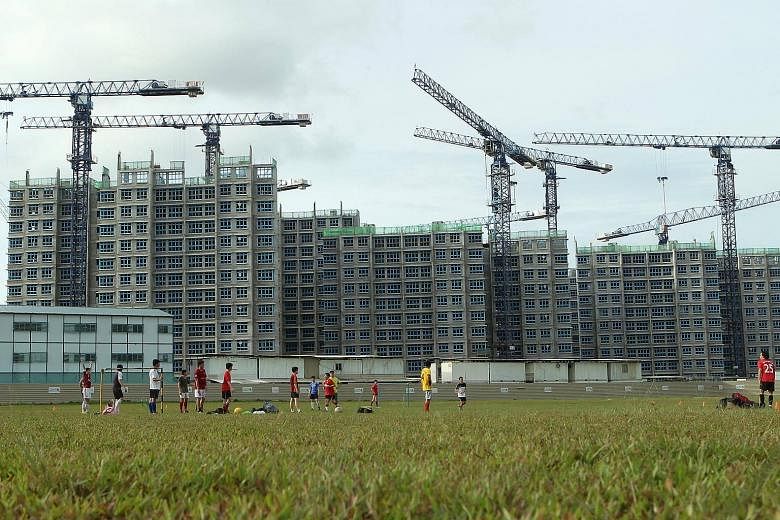Most land parcels in Singapore are sold on leases - and would return to the Government after a spell.
Why then would it be imprudent to use proceeds from their sale to fund Singapore's spending?
Workers' Party chairman Sylvia Lim (Aljunied GRC) raised this question yesterday, following on a suggestion mooted by fellow party MP Pritam Singh on Tuesday to use land sale proceeds to boost revenue, up to a cap, such as 20 per cent of land sales for that year.
All land sale proceeds currently go to the national reserves.
In response, Finance Minister Heng Swee Keat noted that most land parcels are sold on long leases of 30 to 99 years.
This means it could take up to 100 years for a parcel of land to return to the Government.
"So, if you are rigorous about it, you really ought to be spending no more than 1 per cent of that land sale proceeds (each year), even if you want to use land sale proceeds, because that is what the land is worth for a year."
Mr Singh had also proposed temporarily tweaking the net investment returns contribution (NIRC) framework so the Government could spend, say, 60 per cent or 70 per cent of the expected returns generated by the Monetary Authority of Singapore (MAS), Temasek Holdings and GIC, the three entities that manage and invest the reserves.
This, he suggested, could help fund large infrastructure pro-jects. The NIRC spending cap could then be lowered back down to the current 50 per cent and revenues from the projects returned to the reserves.
Mr Heng argued that the Government's plan of issuing bonds for these projects was better, as it would allow investors to "scrutinise those numbers". The reserves could be used to guarantee the borrowings. "And so you are using the strengths of the reserves strategically but without touching the reserves, so the reserves can continue to be invested for long-term gains," he said.
Yesterday, Mr Heng underscored the importance of Singapore's reserves, saying they help to defend the Singapore dollar against speculators in times of crisis.
Mr Singh wanted to know how the Government determines how much of the reserves are needed to maintain the strength of the Singapore dollar.
Mr Heng said: "Speculators know that should they try to attack the Singdollar, it is not just our official reserves that they have to contend with, we also have reserves that are invested in longer-term assets and that we will be able to mobilise if we need to."
This was one reason why speculators largely left the Singdollar alone during the Asian financial crisis of 1997, even as they sold down other regional currencies, sometimes to the point of collapse. In relating his experiences during the crisis, Mr Heng painted a picture of how important it was to be a responsible steward of the reserves.
Wading into the exchange, Nominated MP Kuik Shiao-Yin asked about the feasibility of a suggestion by OCBC economist Selena Ling to split the reserves into two parts: One, to generate the NIRC, whose amount could be publicly disclosed, and another to be kept secret, to deter currency speculators. This would increase transparency and encourage more meaningful public discussions, she said.
Mr Heng said he had considered it, but did not think it a sound move as there would still be speculations over the secret portion.
Furthermore, MAS' official foreign reserves are already public data and it would not be wise to reveal more, as it could attract currency speculators whose profit motive, as seen during the Asian financial crisis, "can destroy countries", he said.
Yasmine Yahya


